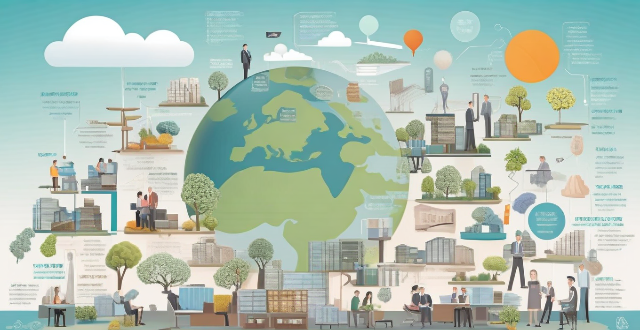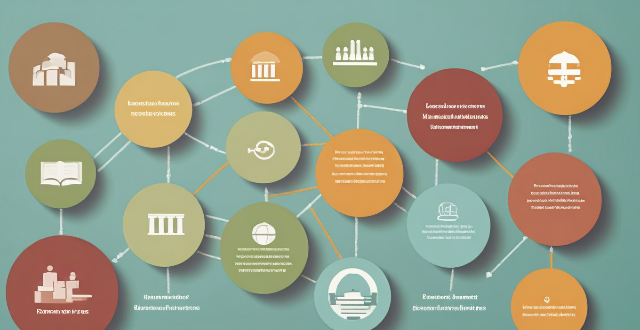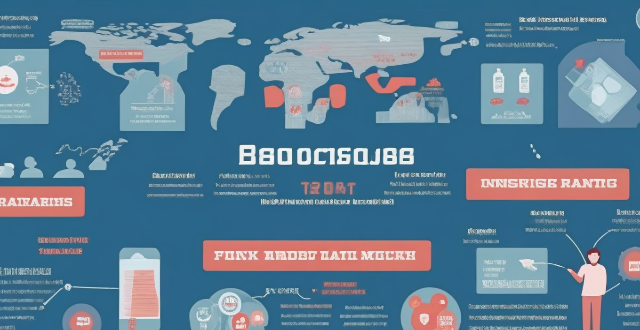Country International

How do sports boycotts or bans reflect on international relations ?
Sports boycotts or bans are often used as a political tool to express disapproval or to exert pressure on another country. These actions can have significant implications for international relations, as they can be seen as a form of diplomatic action. This essay explores how sports boycotts or bans reflect on international relations and the potential consequences that may arise from such actions. Sports boycotts or bans are often used as a form of protest against perceived injustices or violations of human rights, political disagreements, or other issues that may affect international relations. Historical examples include the African nations' boycott of the 1972 Summer Olympics due to Rhodesia's inclusion, the US-led boycott of the 1980 Summer Olympics in Moscow to protest the Soviet Union's invasion of Afghanistan, and calls for sports boycotts against China over its treatment of Uighur Muslims in Xinjiang province. Sports boycotts or bans can create diplomatic tensions between countries, leading to further escalation of conflicts. They can also have economic consequences for both the host country and participating athletes, as well as limit opportunities for cultural exchange and global unity. As such, it is important for countries to carefully consider the potential consequences before engaging in sports boycotts or bans as a form of political protest.

What are the economic implications of pursuing carbon neutrality for a country ?
Pursuing carbon neutrality has both positive and negative economic implications for a country, including job creation, innovation, energy independence, short-term costs, impacts on traditional industries, and potential carbon leakage.

Are there any restrictions on what I can buy and ship to my country ?
**Restrictions on International Purchases and Shipping:** When buying and shipping items internationally, restrictions vary by country to ensure safety, prevent disease spread, and maintain economic balance. Restricted items often include agricultural products, animal products, cultural artifacts, dangerous goods, electronic devices, medication, military items, and products from protected species. Additionally, many items face customs duties and taxes. It is crucial to research specific regulations before making an international purchase to avoid legal issues and contribute to broader goals like public safety and cultural preservation.

What happens if I don't declare all the cash I'm carrying when entering a country ?
The text provides a comprehensive overview of the potential penalties and inconveniences that may arise from not declaring cash at customs when entering a country. These include fines, seizure of funds, travel restrictions, administrative inconvenience, and loss of face. To avoid these consequences, it is recommended to be honest about the amount of cash carried, keep receipts, research regulations, and consult professionals if necessary.

How do issues like doping scandals affect the reputation of countries in international sports ?
Doping scandals have a negative impact on the reputation of countries in international sports, including loss of credibility, negative media coverage, reduced participation in international competitions, financial consequences, and damage to athlete reputations.

How do national sports teams represent their country's image on the international stage ?
National sports teams play a crucial role in representing their country's image on the international stage. They are seen as ambassadors of their nation, showcasing values, culture, and spirit through their performances and behavior. Athletes inspire national pride and promote cultural exchange, uphold ethical standards, and embody national spirit. Successful performances enhance prestige, while handling setbacks with grace demonstrates resilience. Supporting national sports teams fosters national identity and pride globally.
![What are some must-try dishes in [insert city/country] ?](/imgs/2f8b31ee-f62a-46e3-8828-37a4af062f9b.png)
What are some must-try dishes in [insert city/country] ?
Must-Try Dishes in [Insert City/Country]: A Culinary Journey When exploring the culinary delights of a new city or country, it's always exciting to try local dishes that showcase the unique flavors and ingredients of the region. In this article, we will delve into some must-try dishes in [insert city/country]. The first dish on our list is [dish name], known for its rich and flavorful taste. It typically consists of [ingredients/preparation method] and is a perfect representation of the local cuisine, offering a blend of traditional spices and fresh ingredients. Next up is the popular dish [dish name], made with [ingredients/preparation method]. This dish is not only delicious but also visually appealing, making it a feast for both your taste buds and eyes. Another unique dish found in [insert city/country] is [dish name], characterized by its [ingredients/preparation method]. This dish offers a unique twist on traditional [insert city/country] cuisine, combining familiar flavors with unexpected ingredients. Last but not least is the beloved dish [dish name], featuring [ingredients/preparation method]. This dish is a true representation of [insert city/country]'s street food culture, offering a quick and tasty snack for locals and tourists alike. In conclusion, [insert city/country] offers a wide variety of must-try dishes that cater to different tastes and preferences. From traditional staples to unique twists on classic recipes, there's something for everyone to enjoy. So next time you find yourself in [insert city/country], be sure to give these dishes a try!

How do immigration policies influence international relations ?
Immigration policies have a significant impact on international relations, affecting economic partnerships, diplomatic ties, and cultural exchange. These policies can attract highly skilled workers, boost innovation, and enhance trade relationships, but they can also lead to job market issues and social tensions. Cultural diversification from immigration can improve mutual understanding and respect between nations, while restrictive policies can hinder the movement of diplomatic personnel. A country's approach to refugees and asylum seekers can influence its global standing, and the handling of refugee crises can lead to political tensions. Economic migration can cause a brain drain or be viewed as a form of development assistance. Immigration policies are a critical area of focus for international relations due to their far-reaching implications.

What are the most popular destinations for international students ?
The United States, the UK, Canada, Australia, Germany, and France are among the most popular destinations for international students due to their renowned universities, high-quality education, diverse cultures, and career opportunities. Each country offers unique experiences and benefits such as historical significance in the UK, multicultural societies in Canada and Australia, affordable tuition fees in Germany, and cultural immersion in France. These destinations provide not only quality education but also a chance to immerse oneself in different cultures, languages, and ways of life, making them highly sought after by international students worldwide.

What are some popular shopping apps that provide international shipping options ?
The text provides a summary of popular shopping apps that offer international shipping options, including Amazon with its Global Store, Amazon Global, and Prime International Shipping; eBay with its Global Shipping Program and International eBay Sites; AliExpress with Standard Shipping, CaoNiLao Premium Shipping, and DHL Shipping; ASOS with Global Shipping and free returns; and Zalando with International Shipping and partnerships with local postal services.

In what ways do immigration policies affect the cultural diversity of a country ?
Immigration policies play a significant role in shaping the cultural diversity of a country. Policies that promote multiculturalism, facilitate family reunification, and provide opportunities for legal migration can enhance cultural diversity. In contrast, strict immigration controls, deportation policies, and anti-immigrant sentiments can hinder it.

How does international environmental law address global warming ?
International environmental law plays a crucial role in addressing global warming by setting standards, encouraging cooperation, and promoting sustainable practices through treaties, agreements, and principles. The Framework Convention on Climate Change (UNFCCC), the Kyoto Protocol, and the Paris Agreement are key legal instruments that establish targets for reducing greenhouse gas emissions and provide mechanisms for compliance and financial support. Other initiatives such as Regional Seas Programmes, the Convention on Biological Diversity (CBD), and Forest Law Enforcement, Governance and Trade (FLEGT) also contribute to mitigating climate change. Challenges include enforcement, political will, and ensuring equity and justice in actions taken. As the fight against global warming continues, international environmental law must adapt to evolving scientific, political, and technological landscapes, requiring collaboration and innovation among nations.

What is the importance of international cooperation in addressing climate change ?
International cooperation is crucial in addressing the global challenge of climate change. It enables shared responsibility, economic efficiency, political will, global impact, innovation and technology transfer, and strengthening multilateralism. By working together through international organizations and treaties, countries can take decisive action on climate change and create a sustainable future for all.

What role does international cooperation play in enhancing global health security ?
In the realm of global health security, international cooperation plays a pivotal role. This collaboration among nations and organizations is crucial for addressing health challenges that transcend borders. Here's how international cooperation enhances global health security: ## Surveillance and Early Warning Systems - **Global Surveillance Networks**: By sharing information on disease patterns and potential threats, countries can work together to detect and respond to emerging health risks more effectively. - **Joint Research Efforts**: Collaborative research initiatives help to identify new pathogens and develop diagnostic tools, treatments, and vaccines. ## Strengthening Health Systems - **Capacity Building**: Weaker health systems can be supported through knowledge transfer, training programs, and infrastructure development. - **Resource Allocation**: International aid and funding can target areas most in need, improving healthcare access and quality. ## Coordinated Response to Health Crises - **Disaster Relief**: In times of crisis, such as natural disasters or large-scale outbreaks, international teams can provide urgently needed medical assistance. - **Policy Harmonization**: Aligning policies and procedures across countries ensures a cohesive approach to managing public health emergencies. ## Research and Innovation - **Technology Transfer**: The exchange of innovative medical technologies and practices can lead to better prevention and treatment options globally. - **Collaborative Trials**: Multi-country clinical trials accelerate the evaluation and adoption of new interventions. ## Education and Training - **Skill Development**: International educational programs prepare healthcare workers with the latest knowledge and skills. - **Public Awareness Campaigns**: Joint efforts in public health education can improve global health literacy and promote preventive measures. ## Norms and Standards - **Harmonization of Regulations**: Uniform standards for drugs, vaccines, and medical devices ensure quality and safety worldwide. - **Ethical Guidelines**: International ethical standards protect research participants and ensure the integrity of scientific endeavors. ## Financial Support - **Investment in Health**: International financing mechanisms provide critical funding for health programs. - **Economic Stabilization**: Financial support during health crises can prevent economic collapse in affected regions. ## Information Sharing - **Transparency**: Open communication about health issues encourages trust and cooperation among nations. - **Best Practices**: Sharing successful strategies helps all countries learn from each other's accomplishments and mistakes.

What are the legal implications of failing to meet climate targets set by international agreements ?
Failing to meet climate targets set by international agreements can have significant legal implications, including liability for damages caused by climate change, violation of international law, and domestic legal consequences. These implications can vary depending on the specific agreement and jurisdiction in question, but some common consequences include public and private claims for damages, trade sanctions, loss of funding or aid, international dispute resolution, regulatory compliance, shareholder pressure, and reputational risk.

How do international collaborations influence the development of rocket technology ?
International collaborations play a crucial role in the development of rocket technology by fostering knowledge exchange, sharing resources, and pooling expertise to overcome complex challenges. Here's a detailed look at how these partnerships influence advancements in this sector: 1. **Knowledge Exchange**: - **Cross-pollination of Ideas**: Collaborative efforts allow for the cross-pollination of ideas from different countries, each bringing unique perspectives and solutions to the table. This diversity of thought can lead to innovative breakthroughs that might not have been possible within a single nation's framework. - **Education and Training**: Through international partnerships, scientists, engineers, and technicians have access to educational programs and training opportunities that broaden their skill sets and keep them abreast of the latest advancements in rocket technology. 2. **Resource Sharing**: - **Financial Resources**: Developing advanced rocketry is costly. Partnerships can spread the financial burden across multiple nations, making ambitious projects more feasible and sustainable. - **Technical Resources**: Different countries may specialize in specific areas of rocket technology. By collaborating, they can share tools, facilities, and materials, accelerating research and development processes. 3. **Expertise Pooling**: - **Specialization**: Each country often has its areas of specialization. International collaborations enable the concentration of specialized knowledge and skills on particular aspects of rocket technology, leading to more efficient and effective outcomes. - **Problem-Solving**: When faced with complex engineering problems, a collaborative approach means that diverse teams can work together to find solutions more quickly and effectively than isolated efforts might achieve. 4. **Risk and Cost Sharing**: - **Reducing Individual Risk**: By collaborating, nations can share the risks associated with rocket development. This risk distribution makes it easier for countries to embark on ambitious projects without bearing the full consequences of potential failures. - **Cost Efficiency**: Sharing the costs of research, development, and manufacturing among partners can make rocket technology more affordable, allowing for greater investment in innovation rather than duplicative efforts. 5. **Global Standards and Regulations**: - **Unified Approach**: Collaboration helps in establishing global standards for safety, quality, and performance. These standards ensure consistency in the industry and make it easier for different countries to work together seamlessly. - **Compliance and Regulation**: International cooperation also facilitates the creation of regulations that govern the responsible use of space, preventing conflicts and ensuring the sustainable exploration and use of space for all nations. In conclusion, international collaborations are instrumental in propelling the development of rocket technology forward. They create an environment where resources, knowledge, and expertise are shared, risks and costs are distributed, and global standards are established, ultimately benefiting all participants in the quest for space exploration and beyond.

What are some examples of how climate change has affected international security ?
Climate change has significant implications for international security, including resource scarcity and competition, displacement and migration, state fragility and failed states, environmental refugees, and national security threats. These challenges require global cooperation and strategic planning to mitigate their effects on international stability.

How long does it typically take to receive a tax refund after leaving a country ?
Leaving a country can be a stressful process, and one of the concerns that many expatriates have is how long it will take to receive their tax refund. The answer to this question depends on several factors, including the country you are leaving, your residency status, the method of application, and the time of year. By following best practices such as filing electronically, providing complete information, following up with tax authorities, and considering professional help, you can help speed up the process and receive your refund more quickly.

How do cultural exchanges through sports influence international relations ?
Cultural exchanges through sports have a significant impact on international relations by promoting mutual understanding, enhancing diplomatic relations, promoting peace and unity, providing economic and social benefits, increasing globalization, and presenting potential challenges such as nationalism and commercialization concerns. These exchanges foster understanding, build bridges between nations, and contribute to a greater sense of global community.

Do I need a visa if I'm only staying in the country for a few hours ?
Do I Need a Visa If I'm Only Staying in the Country for a Few Hours? Traveling to a foreign country often involves understanding the visa requirements, even if your stay is only for a few hours. The need for a visa depends on factors such as the purpose of your visit, the duration of your stay, and the specific regulations of the country you are visiting. Some countries offer visa exemptions for brief transit stays, especially if you remain in the airport and do not enter the country's territory. For business meetings or other activities that require leaving the airport, a visa may be necessary regardless of the duration. Countries often have specific rules for visits shorter than 24 hours or even up to 90 days, which may affect visa requirements. Generally, if your stay exceeds the short-term visit limit, a visa will be required. Some countries have agreements that allow citizens of certain nations to enter without a visa for short periods. For layovers or connecting flights, some countries issue transit visas that allow limited time within the country or its airports. To determine visa requirements, research the country's visa policy, consult with the airline, check travel advisories, and contact the embassy directly if unsure. Whether you need a visa for a short stay largely depends on the country's immigration policies and the purpose of your visit. It is essential to research and understand these requirements before traveling to avoid any complications at border control.

Can national governments alone tackle the issue of climate change, or is international cooperation necessary for effective global climate governance ?
Climate change is a complex issue that requires global cooperation to effectively tackle. While national governments can implement policies and invest in research within their borders, the interconnectedness of climate change factors necessitates international collaboration. Global agreements, technology transfer, and financial support are crucial components of this cooperation. Ultimately, a combination of national efforts and international partnerships is needed for effective climate governance.

What are the benefits of using a package forwarding service for international shopping ?
**Benefits of Using a Package Forwarding Service for International Shopping** Using a package forwarding service offers several benefits for international shoppers, including cost savings, increased shopping flexibility, potential tax and duty advantages, convenience, additional services, and peace of mind. These advantages make it easier and more efficient to shop from retailers around the globe without directly facing the complexities of international shipping.

What are the ethical considerations when sports are used in international diplomacy ?
Sports have been used as a tool for international diplomacy, but there are ethical considerations to take into account. These include respecting cultural differences, promoting fairness and equity, avoiding political manipulation, and protecting athletes' rights. By doing so, sports can continue to serve as a positive force for building bridges between nations.

How do political tensions affect the participation of countries in international sports competitions ?
The article discusses how political tensions can impact countries' participation in international sports competitions by affecting travel restrictions, safety concerns, boycotts and protests, sponsorship and funding issues, diplomatic pressure, image and reputation concerns, reduced attendance and viewership, security measures, and lost cultural exchange opportunities. It emphasizes the need to find solutions that allow sports to continue serving as a unifying force in our global community.

How do competitive sports contribute to the growth of a country's economy ?
Competitive sports significantly contribute to a country's economic growth by boosting tourism, creating jobs, generating media and advertising revenue, diversifying the economy, improving social welfare, enhancing urban development, and attracting foreign investments. Major sporting events not only provide temporary employment but also stimulate long-term infrastructure development and technology innovation. Moreover, they foster national unity and health benefits, indirectly contributing to economic stability. Overall, competitive sports are instrumental in showcasing a country's potential on a global scale, leading to numerous economic advantages.

What are the benefits of immigrant integration for both the individual and the host country ?
Immigrant integration is crucial for both the individual and the host country, offering benefits such as cultural exchange, economic opportunities, social support, diversity and inclusion, population growth and aging, and improved international relations. By embracing immigrant integration, we can create a more harmonious and prosperous society for all.

How can universities improve their support services for international students ?
Universities can enhance support for international students by offering cultural orientation, language training, academic tutoring, writing assistance, social integration activities, career development, and internship opportunities.

Which country has won the most FIFA World Cup titles ?
The country that has won the most FIFA World Cup titles is Brazil, with a total of five (5) titles. The Brazilian national football team is widely considered one of the most successful in the history of the sport. Other countries that have achieved significant success in the World Cup include Germany, Italy, Argentina, and Uruguay.

Can you provide examples of international tax planning strategies ?
Here is a summary of the topic: The text discusses various international tax planning strategies that companies can use to reduce their tax liability. These include: 1\. Tax Treaty Shopping: Using provisions in tax treaties between two countries to lower taxes. 2\. Transfer Pricing: Manipulating transfer prices for transactions between related companies in different countries to shift profits to lower-tax jurisdictions. 3\. Deferral of Taxes on Foreign Income: Delaying payment of taxes on income earned in a foreign country until it is repatriated to the home country. 4\. Use of Offshore Companies: Setting up a company in a low-tax jurisdiction to conduct business activities and avoid high taxes in other countries. 5\. Cross-Border Inversions: Acquiring a company in a low-tax jurisdiction and moving the headquarters of the combined entity to that jurisdiction to reduce tax liability in the home country.

Can international students apply for scholarships ?
International students can apply for various scholarships offered by universities and organizations to offset the cost of tuition, books, and living expenses. These include merit-based scholarships awarded based on academic or leadership skills, need-based scholarships considering financial situation, athletic scholarships, diversity scholarships, and first-generation college student scholarships. External organizations like the Fulbright Program and Rotary International also provide opportunities. To apply, research available scholarships, review requirements, prepare application materials, apply early and regularly, and seek additional funding sources.